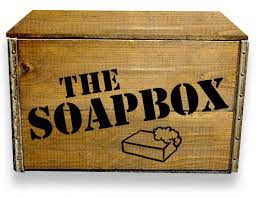A recent post on LinkedIn written by a new employee described how impressed he was that the CEO of the company knew his name, his hobbies, his history, etc. These were all things that had come up during the interview process and the LinkedIn poster was flattered that the CEO took the time to find this information out about him before meeting him. The poster clearly valued the personal interest the CEO showed him. It made him feel appreciated.
Many well-meaning leaders might hear this story and think ‘Wow, that sounds amazing. I need to find out everything I can about my team so they feel valued too.’
Hold on leaders. Before you run off to investigate everything you can about your employees, consider whether you’ll come across as creepy or sincere. First of all, choosing a one-size-fits-all leadership approach is never a good idea. Secondly, not everyone likes to get as personal as the LinkedIn poster mentioned above. It wasn’t creepy to the LinkedIn poster because that’s what he valued.
On the other hand, consider the woman whose newly hired boss insisted on interrogating, a-hem… ‘getting to know her’, at their first meeting. The new boss read from a checklist of personal questions inquiring about her personal life, including spouse, children, and hobbies. According to the woman, it came off as calculating and cold as if the boss were completing some kind of leadership assignment. Quite frankly, it was a little creepy. It reeked of a leadership method the boss learned somewhere and thought would be a good idea to implement. Plus, there was no consideration for whether or not the woman wanted to get that personal with her boss. She didn’t.
Good leadership isn’t about applying a one-size-fits-all method learned in a book or seminar. Good leadership means leading people according to where they’re at and what they want. If that means getting to know an employee personally because they value relationships then go for it. But taking a personal approach with someone who is more task-focused is doomed to fail. Imposing well-meaning leadership methods on people without considering what they want simply comes off as selfish and insincere. It’s not about the other person at all. It’s all about you. That is the opposite of good leadership.
How do you find out how personal to get? One place to start is with a personality assessment. Personality assessments like DiSC® provide insight into whether a person is more task-focused or people-focused. Understanding these preferences not only help you become a better leader by adapting to individual styles, it also helps gauge how the person will fit into the culture of the group. Using an assessment like DiSC® during the hiring process or during the first days on the job is a good practice. Whether it’s an existing boss meeting a new hire, or a new boss getting to know an existing team, they will have a better idea of whether to focus on accomplishments and goals or personal topics. Now that’s good leadership.
